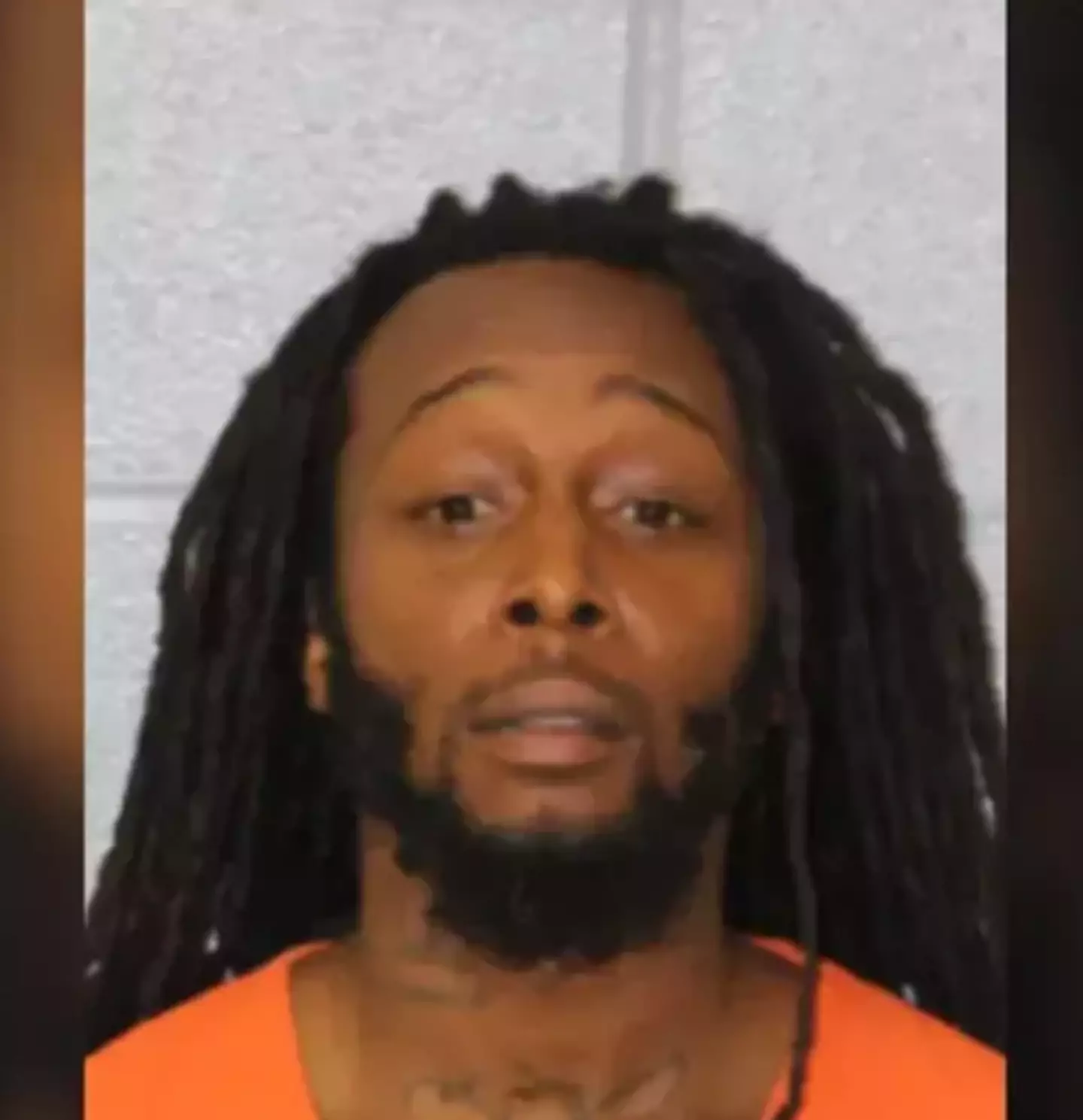
Topics: North Carolina, Mental Health, Crime, US News
A new law could see the suspected murderer of a Ukrainian refugee face the death penalty by firing squad.
On August 22, Iryna Zarutska was stabbed to death by a stranger while travelling on a train in North Carolina.
Decarlos Brown Jr., is accused of murdering the 23-year-old Ukrainian refugee in the unprovoked attack.
Harrowing video footage shows Brown sitting behind Iryna before allegedly pulling out a knife and stabbing her several times.
Advert
Cops arrested the 34-year-old, who reportedly suffers from mental health issues and schizophrenia, just minutes later from the next stop. He has since been charged with first-degree murder.
The horrific case has gripped headlines all over the world and has attracted attention from President Donald Trump himself, who said the killer deserves nothing less than the death penalty.
Now, it appears that this may well become a reality if Brown is convicted of the brutal slaying with the introduction of a new piece of legislation.

House Bill 307, dubbed 'Iryna's law', was passed by an overwhelming majority by both chambers in the Tar Heel State's Legislature on Friday (October 5), which was then stamped by North Carolina's Democratic Governor Josh Stein.
The bill proposes an amendment that would permit the state to reinstate capital punishment, including by firing squad and the electric chair.
Lethal injection is currently the only approved method, though there have been no executions in the state since 2006.
Lawsuits have continually accused the courts of creating a de facto moratorium, a temporary suspension or delay, from the death penalty being carried out.
Yet 'Iryna's law' would bypass these legal challenges and would further require death penalty appeals to be heard within two years of filing.
There are currently 122 inmates on death row in North Carolina, according to WCNC.
The reform also tightens bail conditions for people suspected of violent crimes, prohibiting cashless bail and limiting a judges' authority over pretrial release.

Mental health evaluations will also be ramped up as a requirement for defendants, which could become mandatory when a suspect charged with a violent offence has been involuntarily committed in the past three years.
The change comes as Brown was reportedly arrested and released several times before allegedly taking Iryna's life.
He was arrested in January for 'misuse of the 911 system', during which he reportedly told cops 'man-made' materials inside him were controlling his body.
Brown was apparently 'upset' by the way police responded and made another 911 call while cops were still there, resulting in him being charged. However, he wasn't detained and was released the same day.
His family say Brown 'shouldn't have been released' following the incident.
Gov. Stein said in a video statement about the new bill that it 'alerts the judiciary to take a special look at people who may pose unusual risks of violence before determining their bail'.
"That’s a good thing and why I have signed it into law."

However, he said there will be 'no firing squads in North Carolina during my time as governor'.
While in custody, a phone conversation allegedly saw the suspect recalling the attack to his sister, stating: "I hurt my hand, stabbing her. I don't even know the lady.
"I never said not one word to the lady at all. That's scary, ain't it. Why would somebody stab somebody for no reason?"
He further called for cops to investigate the 'materials' he believes are inside him that are 'controlling' him, stating 'they just lashed out on her'.
"Now they really gotta investigate what my body was exposed to," the audio continued. "Now they gotta do an investigation as to who was the motive behind what happened."
Iryna and her family had relocated to the US in 2022 to flee war-torn Ukraine.